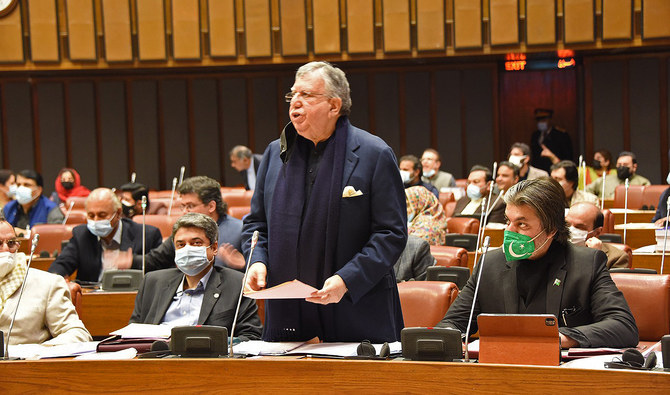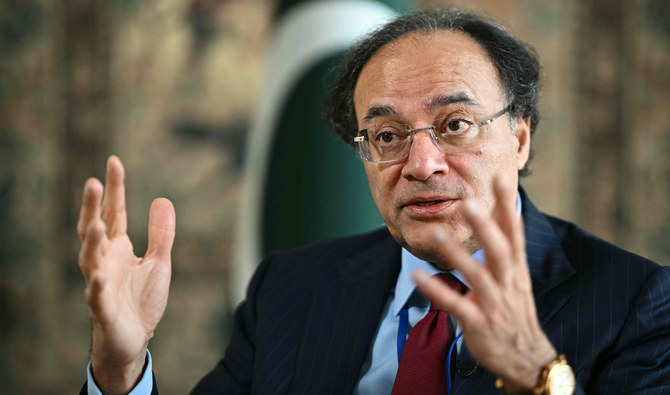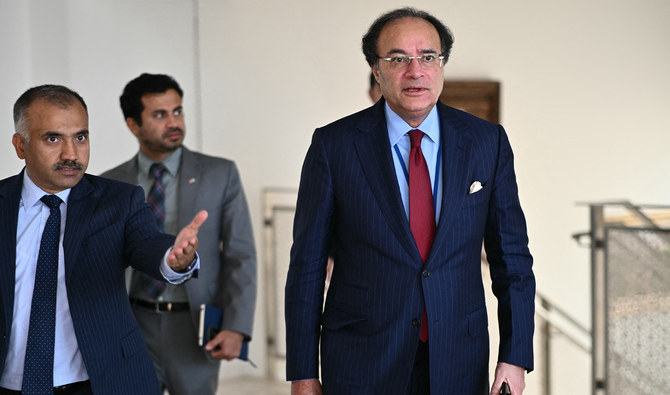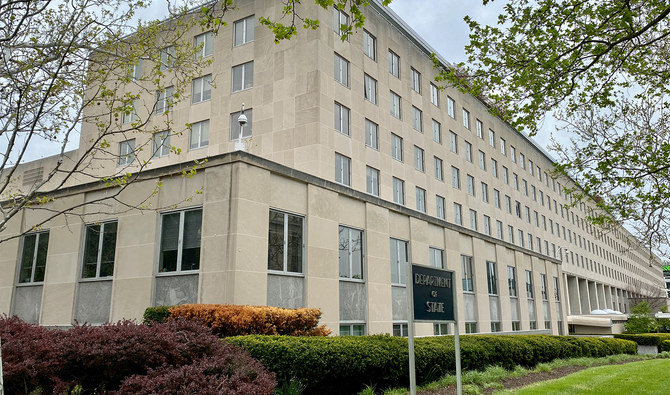ISLAMABAD: With the passage of the State Bank (Amendment) Bill from the Senate, the Pakistani government on Friday completed the legislative process for the revival of a stalled $6 billion International Monetary Fund (IMF) bailout program to support the fragile economy and avert a balance-of-payment crisis.
The government had the Finance (Supplementary) and State Bank of Pakistan (Amendment) bills passed by the National Assembly on January 13 to secure the next tranche of the IMF's Extended Funds Facility. The Finance Act, commonly known as mini-budget, is already enforced while the central bank autonomy bill required approval of the Pakistani parliament's upper house to become a law.
The passage of these bills from parliament was a pre-requisite for the disbursement of around $1 billion from the IMF. The global lender’s executive board is scheduled to meet on February 2 for Pakistan's sixth review under the $6 billion program.
The State Bank (Amendment) bill has been a major source of contention between the government and the opposition as the latter believes the legislation would compromise Pakistan's economic sovereignty. The government has been of the view that an autonomous central bank would help boost economic growth and stability in the country.
“By facilitating domestic economic stability, the amendments will help support sustainable growth and avoid repeated booms and busts that have characterized Pakistan's past and led to painful consequences in terms of higher inflation, higher poverty and lower growth,” the bill reads.
On Friday, opposition parties protested when Pakistani Finance Minister Shaukat Tareen presented the bill in the Senate, saying the government was going to “mortgage” Pakistan's economic sovereignty to the IMF. The bill was passed with a majority of one vote, with all amendments proposed by the opposition rejected.
Interestingly, the opposition has a majority of at least 14 votes in the Senate, but some of its members were absent in Friday's session.
The government said the amendments in the central bank legislation were in line with international best practices and took ground realities in Pakistan into account.
Shortly after the passage of the bill, opposition members held a press conference and vowed they would withdraw this legislation after coming into power.
“The joint opposition is not in favour of this bill and it will be withdrawn after whichever party of us comes into power,” said Senator Sherry Rehman of the Pakistan Peoples Party (PPP).
Senator Azam Nazir Tarar, a member of the Pakistan Muslim League-Nawaz (PML-N) opposition party, said some of the opposition members could not attend the session due to COVID-19.
“The days of this government are numbered,” he said, adding the government had “mortgaged the country's economic sovereignty to the IMF.”
The revival of the IMF program would make available $1,059 million that would bring total disbursements to Pakistan to about $3,027 million and help unlock significant funding from bilateral and multilateral partners.
Pakistan secured the $6 billion Extended Funds Facility in 2019, which has been stalled since March 2021.
















